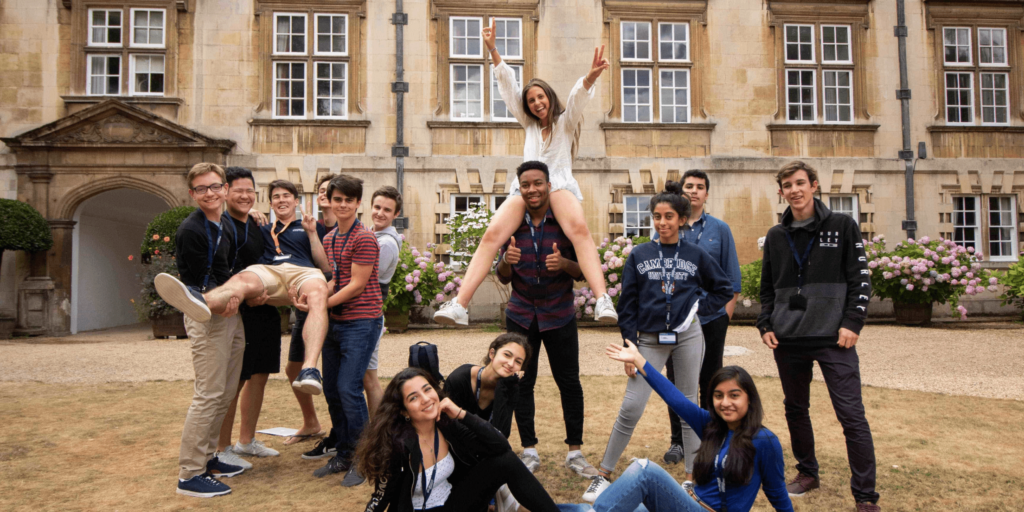In an era where technology intersects with every aspect of our lives, Artificial Intelligence (AI) emerges as a transformative force in personal development.
AI, a branch of computer science that simulates human intelligence in machines, has the potential to revolutionise the way we learn, grow, and navigate the challenges of life. Its relevance to personal development lies in its ability to offer highly customised learning experiences.
This article explores the multifaceted impact of AI on various domains of our lives, including personal development, mental health, entertainment, relationships, health and fitness, problem-solving, and the ethical considerations that accompany its widespread use.
By leveraging the capabilities of AI, we can unlock new possibilities for enhancing our skills, improving our well-being, and enriching our personal and professional relationships. Join us as we delve into how AI-enabled technologies are not just shaping our present but are also paving the way for a future where personal development is more accessible, engaging, and aligned with our individual aspirations.
AI-Enabled Personal Development and Personalised Learning/Growth
The Role of AI in Personal Development
Artificial Intelligence (AI) is revolutionising personal development by leveraging data to understand individual habits and preferences. This innovative approach enables AI algorithms to suggest personalised goals that not only align with one’s personal happiness and well-being but also encourage a more fulfilling life trajectory. A compelling illustration of this potential is seen in the case study of university student Miguel Thorpe. Miguel’s integration of Personal AI into his daily routine led to remarkable personal growth and learning optimisation, showcasing the transformative power of AI in enhancing individual development pathways.
Tailoring Learning to Individual Needs
At the heart of AI’s contribution to personal development is the technology behind adaptive learning. This sophisticated system assesses a learner’s skill levels and learning pace to personalise the delivery of learning materials and challenges. By doing so, it ensures that each learner receives content that is not too easy nor too hard, thereby maintaining an optimal learning curve. The RAND Corporation’s research underscores the effectiveness of this approach. It finds that students who engage in personalised learning environments experience significant academic gains. This evidence points to a future where education is not a one-size-fits-all model but a customised journey that adapts to the evolving needs of each learner.
Examples of AI Applications
Exploring further into the realm of AI applications, apps like Habitica stand out for their innovative use of gamification and AI to foster personal development. Habitica transforms the mundane task of goal setting and achievement into an engaging adventure. Utilising AI to track progress and tailor challenges it motivates users to consistently engage with their goals. Thus, turning personal improvement into a rewarding game. This is just one example of how AI applications are creatively blending technology with everyday life to support individuals in their pursuit of growth, learning, and well-being.
AI in Short-Term Mental Health Support
AI’s Role in Mental Well-being
AI chatbots and applications are transforming mental health support through natural language processing (NLP) and emotional recognition technologies. These tools understand and respond to human language, offering psychological support around the clock. They provide coping strategies and mindfulness exercises, acting as immediate support for individuals in need.
Effectiveness and Limitations
Despite AI’s accessibility, it’s essential to recognise its limitations compared to human therapists. AI tools lack the deep empathy and nuanced understanding that professional therapists offer, making them less suitable for complex emotional issues. Additionally, ethical concerns such as privacy and the necessity for professional oversight highlight the importance of handling sensitive data carefully. AI in mental health should complement, not replace, human expertise, ensuring a holistic approach to mental well-being.
Customised Entertainment and Leisure with AI
Personalised Recommendations
AI revolutionises entertainment by using algorithms to analyse users’ past behaviours, offering personalised music, movie, or book suggestions. Platforms like Spotify and Netflix employ collaborative filtering and machine learning to track user interactions and match them with similar profiles, enhancing content discovery. User feedback indicates a preference for AI-driven recommendations, highlighting the efficiency of personalised content discovery over traditional methods.

Impact on Leisure Quality
However, AI’s tailored recommendations risk creating “filter bubbles,” limiting users to content that matches their existing preferences and potentially narrowing cultural exposure. To mitigate this, platforms are implementing measures to introduce a variety of content, ensuring users have access to a broader range of cultural experiences. Balancing personalised recommendations with diverse content exposure is key to enriching the leisure experience and fostering both personal satisfaction and cultural growth.
Join the Immerse Education 2024 Essay Competition
The Immerse Essay Competition is open for 2024! Follow the instructions to write and submit your best essay for a chance to be awarded a 100% scholarship.

AI in Building and Maintaining Relationships
AI tools like Duolingo Max, Elsa, and Rosetta Stone are revolutionising language learning by offering personalised experiences that improve vocabulary and conversational skills. These platforms use adaptive algorithms to customise lessons, enabling more effective communication in new languages and fostering deeper connections across cultural boundaries.
AI also analyses communication patterns to provide advice on improving social skills and interactions. It can identify areas for growth, such as topic diversity or engagement strategies, enhancing how individuals connect with others.
Additionally, in the realm of social media, AI suggests conversation starters and content, simplifying the process of initiating and sustaining online interactions. These suggestions aim to spark meaningful conversations, helping users to bond over shared interests. Through these innovations, AI is not just improving personal communication but also bridging gaps between people globally.
AI in Health and Fitness
AI leverages personal health data to create tailored fitness and diet plans, aligning with individual goals and restrictions. By analysing activity levels, dietary habits, and health metrics, AI adapts recommendations over time, ensuring they remain relevant and effective. This approach employs machine learning algorithms to customise workout and nutrition guidelines, offering a dynamic solution that evolves with the user’s progress and changing needs.
Personalised health plans significantly impact mental and physical well-being. Users report enhanced fitness, improved dietary habits, and increased mental health, highlighting the comprehensive benefits of AI-driven wellness strategies. These personalised plans not only facilitate physical health improvements but also promote sustained motivation and engagement, underscoring the holistic advantages of adapting health and fitness guidance to each individual’s lifestyle and objectives.
AI for Problem-Solving and Everyday Tips
Adaptive Learning Platforms:
Platforms like Khan Academy and Coursera are transforming education by addressing the limitations of one-size-fits-all models. They offer personalised learning experiences that cater to the individual needs of students, enhancing engagement and comprehension by adapting content to suit learners’ unique strengths and weaknesses.
AI Tutors and Chatbots:
AI tools such as Duolingo and Quizlet provide solutions to the scarcity of accessible human tutors outside classroom settings. These platforms offer 24/7 learning assistance, supporting students with homework, language acquisition, and exam preparation through interactive and adaptive tutoring.
Smart Home Assistants:
Devices like Amazon Alexa and Google Home simplify the complexity of daily task management and smart home device control. By enabling voice-activated commands, they assist users in organising tasks, controlling home appliances, and managing schedules effortlessly.
AI-Powered Productivity Tools:
Productivity applications, including Todoist and Notion, leverage AI to tackle the challenges of task and project management. They offer features like task prioritisation, scheduling suggestions, and the automation of routine tasks, streamlining workflow and enhancing efficiency.
AI Writing Assistants:
Tools like Grammarly and OpenAI’s ChatGPT address the difficulties of writing with efficiency and effectiveness. They provide real-time grammar corrections, style suggestions, and content generation support, aiding users in producing high-quality written work with less effort.
AI boosts productivity in study and daily activities by offering smart time management and prioritisation advice. It analyses habits and schedules to recommend efficient routines and identify priorities, helping balance work, study, and personal time. AI tools streamline tasks and optimise schedules, enhancing time allocation for improved productivity and quality of life.
Disclaimer: AI as a Short-Term Tool
AI enhances convenience and supports various tasks, but it cannot replicate the depth of human relationships and expert advice. It’s important to use AI as an aid, not a replacement for the emotional intelligence and connection found in human interactions. Encouraging a balanced approach, we should leverage AI for growth while acknowledging its limits and the irreplaceable value of human touch. This ensures we harness AI’s benefits responsibly without neglecting the essence of human experiences and connections.
Final Thoughts
AI offers significant benefits for personal development, from customised learning to enhanced well-being, yet it’s not without challenges. We must use AI tools responsibly, understanding their limitations and ensuring they supplement, not substitute, human interaction and traditional learning methods. Embracing AI with a balanced approach allows us to enjoy its advantages while preserving essential human connections. Let’s thoughtfully integrate AI into our growth strategies, leveraging its potential to complement our journey towards personal and professional enrichment.
























